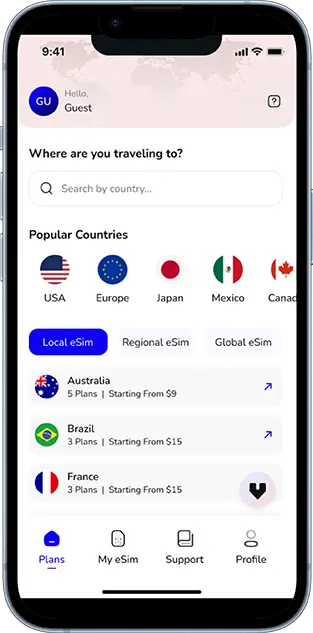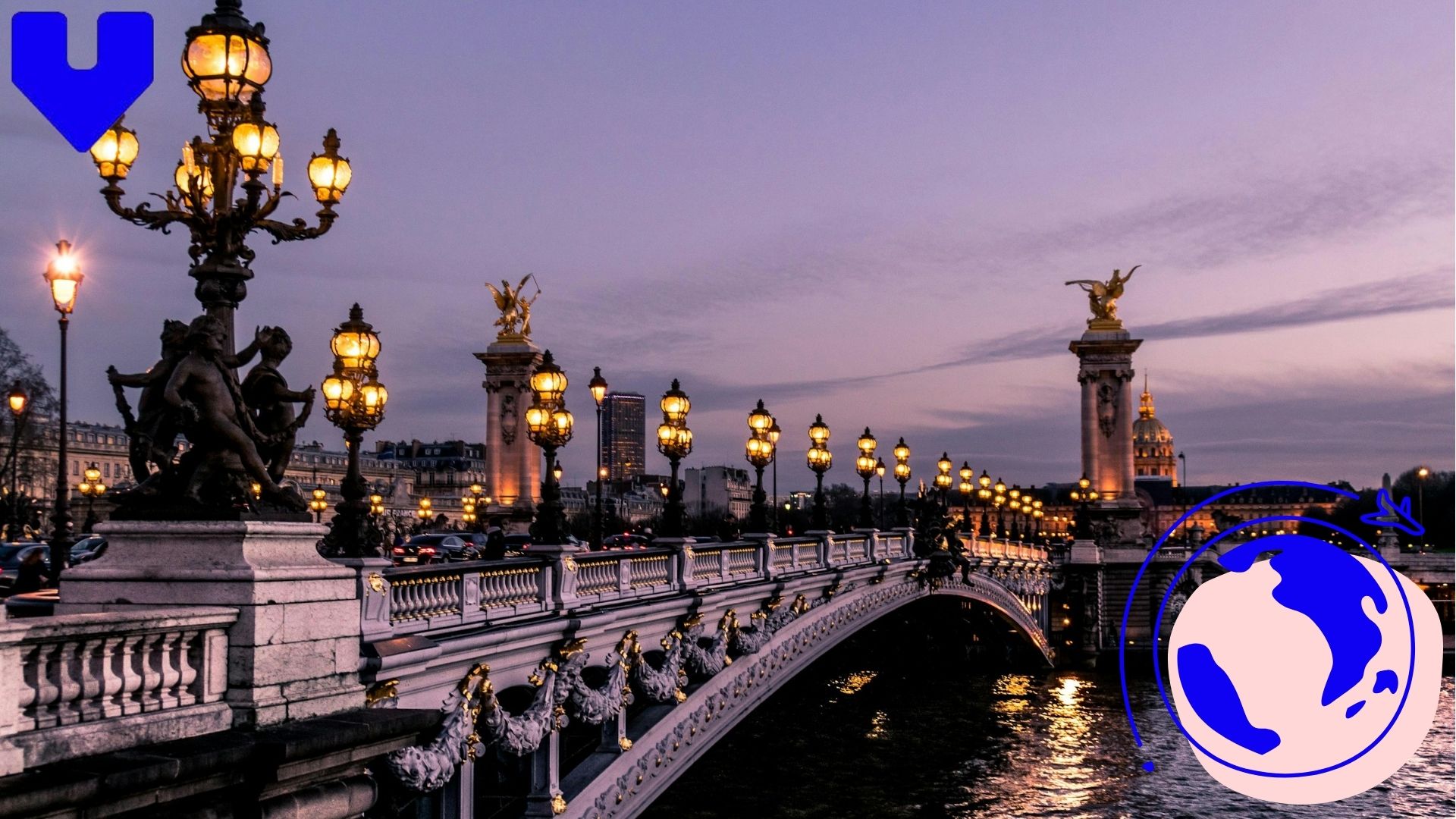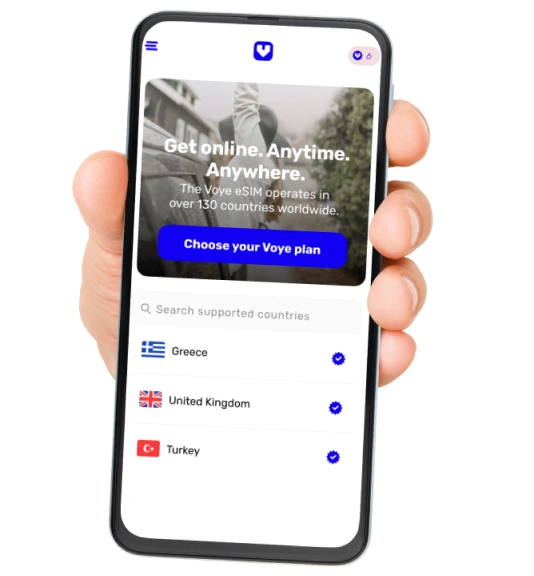Note that iPhone devices from Mainland China aren’t eSIM compatible. Also iPhone devices from Hong Kong and Macao aren’t compatible (except for iPhone 13 Mini, iPhone 12 Mini, iPhone SE 2020 and iPhone XS)
Why Mistakes in France Are Easy to Make?
France is a dream destination for millions, drawing travelers with its timeless art, historic châteaux, lavender fields, snowy alpine peaks, and of course, Paris. Yet, amid the excitement, many tourists find themselves committing mistakes that disrupt their trip – mistakes that are often easy to avoid with a bit of planning and local insight.
From underestimating the size of France to mismanaging dining etiquette, small oversights can lead to stress, wasted money, or missed opportunities. This guide breaks down the top 10 mistakes tourists make in France and gives you practical, easy-to-follow solutions.
In today’s world, staying connected is part of traveling smart. Whether you need to check train schedules, book museum tickets, or simply find your Airbnb in a cobbled backstreet, reliable connectivity can make all the difference. Services like Voye Global’s eSIM help travelers explore France with confidence, without worrying about roaming fees or Wi-Fi hunting.
Mistake 1: Underestimating the Size of France
Many first-time visitors think they can explore Paris, Provence, Bordeaux, and the French Riviera all within a week. On the map, it looks manageable – in reality, France is the largest country in Western Europe, and distances between regions can be significant.
Why This Happens
- Travelers compare France to smaller European countries and assume travel times are short.
- Paris dominates guidebooks, giving the impression that other destinations are “side trips.”
How to Avoid It
- Plan realistically: Focus on one or two regions. For example, Paris + Loire Valley, or Nice + Provence.
- Use high-speed trains: The TGV connects Paris to Marseille in 3 hours, but it still takes time and planning.
- Stay longer: To truly experience Provence markets or Normandy beaches, allow at least 3–4 days per region.
VOYE15 Exclusive Offer
Cut roaming costs and explore France connected with the VOYE15 code.
Mistake 2: Ignoring Local Dining Etiquette
France takes food seriously. Dining isn’t just about eating; it’s a cultural ritual. Many tourists expect quick service, free tap water by default, and large portions. They are surprised when meals are slower-paced or when asking for the bill requires effort.
Common Mistakes
- Waving at waiters instead of waiting patiently.
- Asking for substitutions or splitting dishes.
- Leaving without a “Bonjour” or “Merci.”

How to Avoid It
- Respect the pace: Lunches may last two hours. Dinner often starts after 7:30 pm.
- Learn polite words: Always greet staff when entering and leaving.
- Order the formula: The set menu is usually the best balance of price and experience.
Mistake 3: Overlooking Language Basics
Assuming English is spoken everywhere is one of the quickest ways to encounter frustration. While English is widely spoken in tourist hubs, rural areas often operate almost entirely in French.
Why This Happens
- France is seen as an “international destination” where tourists expect English.
- Hollywood portrayals of Paris show effortless communication.
How to Avoid It
- Learn simple phrases: Bonjour (hello), Merci (thank you), Excusez-moi (excuse me).
- Download a translation app: With a Voye Global eSIM, you can access real-time translations anywhere.
- Smile and try: Effort is always appreciated, even if imperfect.
Mistake 4: Mismanaging Transportation Costs
France has one of Europe’s best transport systems, but poor planning can make it unnecessarily expensive. Buying last-minute train tickets, relying too much on taxis, or skipping passes are common mistakes.
Common Tourist Errors
- Paying full fare because they didn’t book SNCF tickets in advance.
- Choosing taxis for short distances instead of metros.
- Confusion between regional trains (TER) and high-speed trains (TGV).
How to Avoid It
- Book early: Train fares rise closer to departure.
- Use metro passes: Paris offers day or week passes for cheaper travel.
- Travel off-peak: Avoid Fridays and Sundays when ticket demand is high.
(A smart move here is keeping mobile data handy – booking or rebooking trains often requires internet access. Relying only on hotel Wi-Fi can cost you more in missed deals.)
Mistake 5: Overpacking or Packing the Wrong Clothes
France has diverse climates. The Riviera can be warm while Alsace is chilly. Paris’s weather can switch from sun to rain within hours. Tourists who pack heavy luggage or the wrong clothes often struggle with stairs, cobblestones, and variable weather.
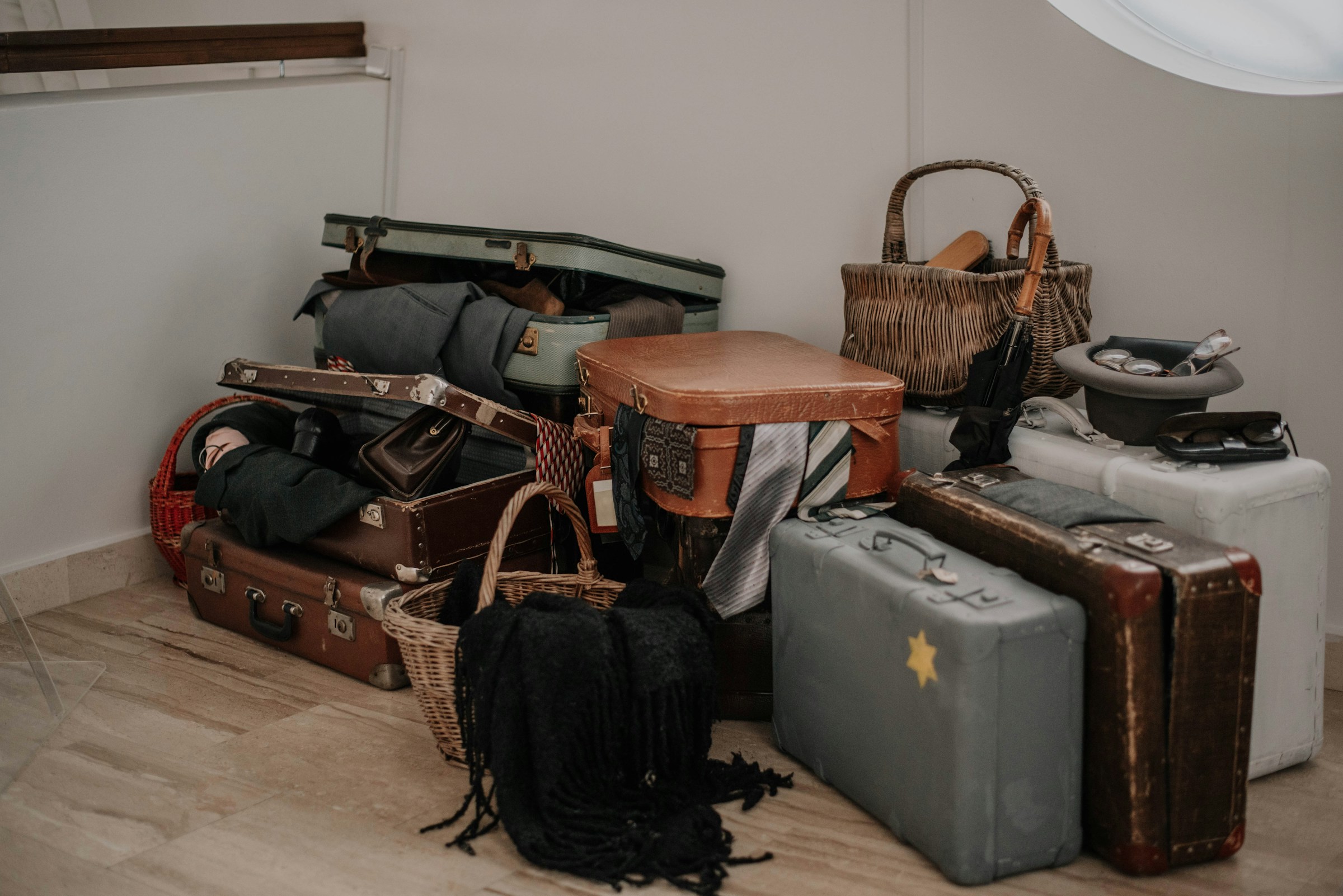
Why This Happens
- Tourists assume Paris’ fashion reputation requires overly formal attire.
- Misjudging geography: France stretches from the Alps to the Mediterranean.
How to Avoid It
- Pack light layers: Mix and match outfits.
- Comfort matters: Walking shoes are essential for museums and city tours.
- Check regional weather: Don’t pack for Nice if you’re heading to Normandy.
Stay Connected in France
Enjoy seamless mobile data across France and beyond effortlessly.
Mistake 6: Sticking Only to Paris
Paris is magnetic. With the Eiffel Tower, Louvre, and Notre-Dame, it’s easy to see why many tourists don’t look further. But France is far more than Paris – limiting yourself to the capital means missing vineyards, coastal towns, and mountain villages that showcase the nation’s true diversity.
Why This Happens
- Paris dominates global imagery of France.
- Limited time leads tourists to believe Paris is “enough.”
- Fear of navigating trains or renting cars outside the city.
How to Avoid It
- Plan day trips: Versailles, Giverny, or the Loire Valley are within 2 hours of Paris.
- Venture further: Try Provence for lavender, Alsace for wine, or Brittany for rugged coasts.
- Use rail passes: TGV trains make regional travel efficient and comfortable.
Mistake 7: Misunderstanding Opening Hours
Tourists often assume shops, restaurants, and museums operate like in North America. In reality, France respects tradition: long lunch breaks, Sunday closures, and staggered museum days.
Common Frustrations
- Arriving at a restaurant at 3 pm and finding it closed until dinner.
- Planning a Monday museum visit only to find it’s shut.
- Expecting late-night dining outside major cities.
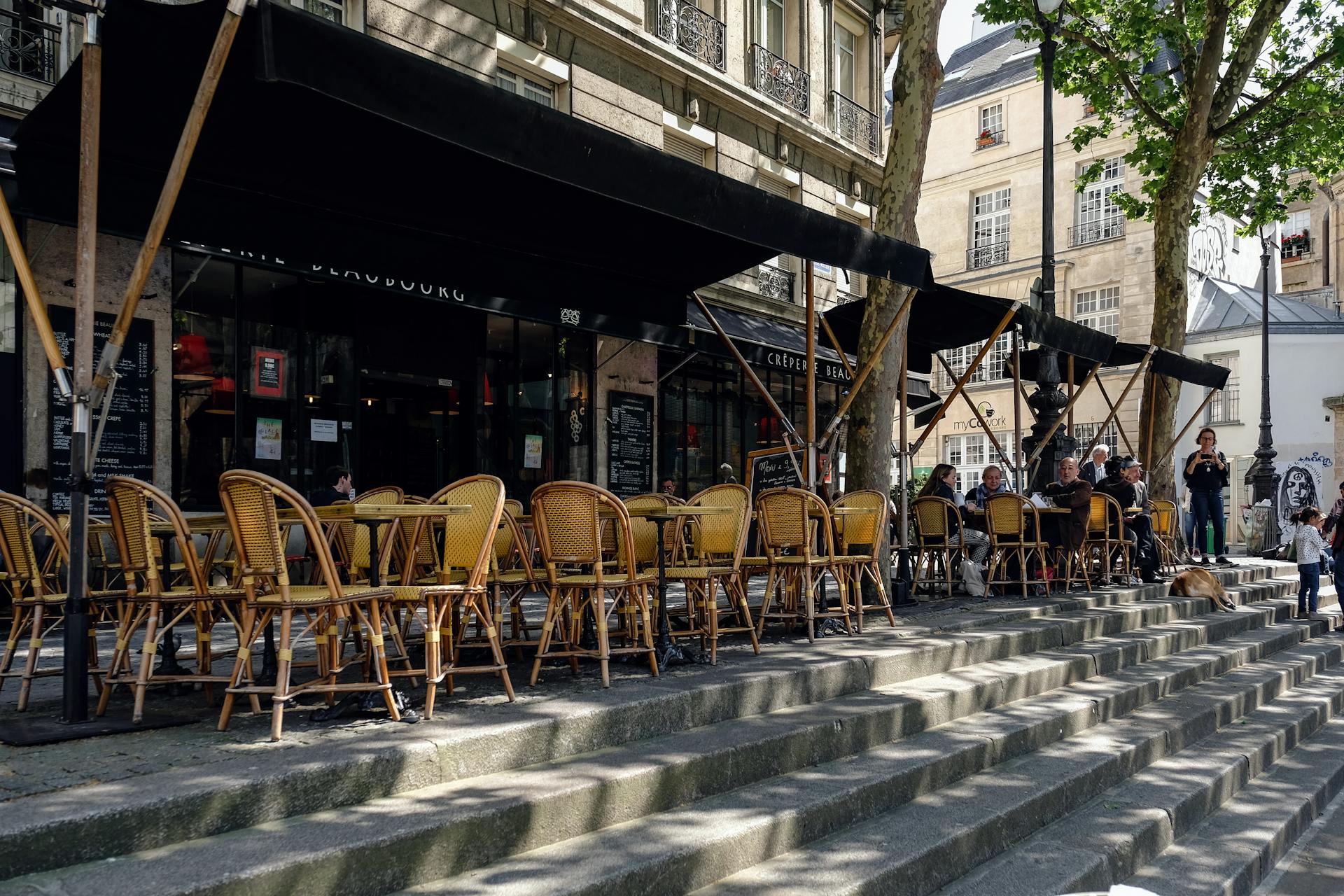
How to Avoid It
- Research ahead: Check official sites for opening times.
- Adjust meal times: Lunch runs from 12–2 pm, dinner from 7–9 pm.
- Stock snacks: Keep small items handy for gaps between meals.
Mistake 8: Falling for Tourist Traps
From overpriced coffee near Montmartre to Eiffel Tower souvenirs made in bulk, tourist traps are everywhere. Many travelers spend money without realizing there are authentic, cheaper alternatives nearby.
How to Spot Tourist Traps
- Menus with photos near monuments.
- Souvenir stalls selling identical items at inflated prices.
- Street “artists” insisting on immediate payment.
How to Avoid It
- Walk two streets away: Prices and quality improve dramatically.
- Shop at local markets: Find authentic gifts and regional foods.
- Read reviews: Apps and forums help spot authentic experiences.
Travel Smarter with VOYE15
Save 15% on France travel eSIM plans with code VOYE15.
Mistake 9: Not Having Reliable Connectivity
In today’s travel landscape, internet access isn’t a luxury – it’s a necessity. Many tourists rely on unreliable hotel Wi-Fi, waste money on roaming, or assume public hotspots will suffice. This often leads to missed train alerts, navigation stress, or inability to access tickets.
Why This Happens
- Assuming Europe-wide roaming is free.
- Believing public Wi-Fi is enough.
- Lack of awareness about eSIM solutions.
How to Avoid It
- Get an eSIM for France before traveling – no physical SIM swap needed.
- Use reliable providers like Voye Global, which offer multi-network coverage.
- Keep offline maps as backup, but rely on stable mobile data for bookings and real-time changes.
(This is where Voye Global fits naturally – helping travelers stay connected seamlessly across France without roaming surprises.)
Mistake 10: Forgetting Cultural Respect
Small cultural oversights can create negative impressions. Tourists sometimes speak loudly in quiet cafés, dress casually at cathedrals, or leave without greetings. While not intentional, these habits can be seen as disrespectful.
Examples of Missteps
- Entering shops without saying “Bonjour.”
- Wearing shorts or tank tops inside churches.
- Assuming tipping is identical to the U.S.
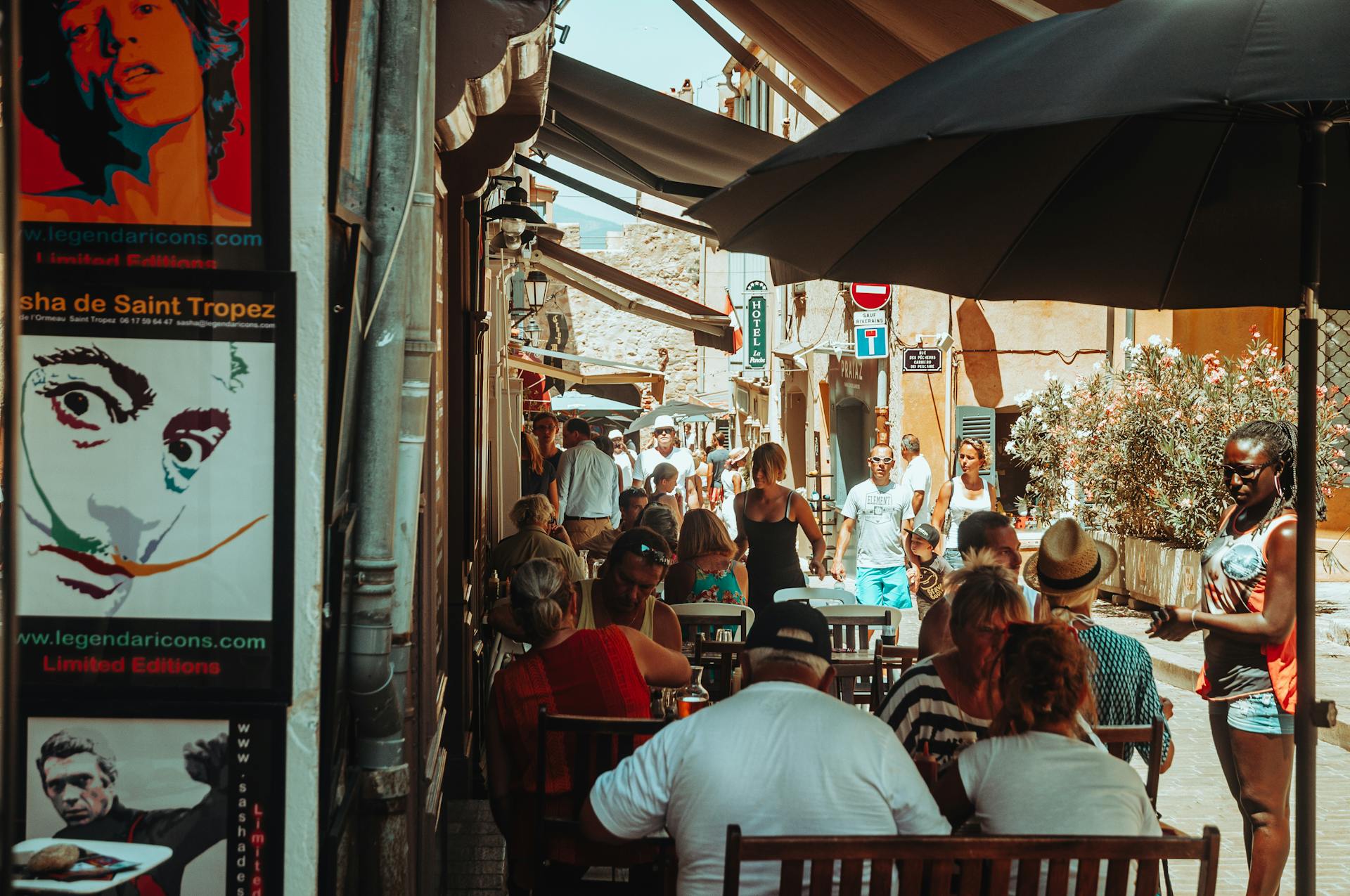
How to Avoid It
- Politeness counts: Always greet staff.
- Dress appropriately, especially in religious or formal settings.
- Tip modestly: Rounding up the bill is sufficient.
Instant Data in France
Navigate hidden food markets with fast eSIM activation today.
Practical Travel Tips for First-Time Visitors to France
Even beyond avoiding common mistakes, first-time travelers to France benefit from a few insider hacks. One of the easiest adjustments is using contactless payment cards for metros, buses, and even many cafés. Instead of fumbling with paper tickets, a simple tap saves time and confusion. For longer stays, regional or city travel passes – such as the Paris Navigo card – can be very cost-efficient.
Booking in advance is another smart habit. Whether it’s the Louvre, Versailles, or a TGV train, reserving tickets online saves hours of waiting in queues. Many museums now require timed-entry tickets, so showing up without one often leads to disappointment.
A reusable water bottle is a surprisingly handy item. France has countless public fountains, especially in Paris, where you can refill bottles for free – even sparkling water in some areas. Pair this with comfortable walking shoes, and you’ll be prepared for the long days of exploring historic streets and grand boulevards.
Finally, remember that French dining and shopping schedules may differ from what you’re used to. Always keep small snacks and a backup plan for restaurants, especially during off-hours, and you’ll move through your trip with far less stress.
Best Times of Year to Visit France Without Crowds
Timing makes a huge difference to the French travel experience. While July and August attract millions of tourists (and inflated prices), visiting in the shoulder seasons – spring and autumn – can be more rewarding.
- Spring (April–May): Flowers bloom, café terraces open, and crowds are smaller than in peak summer. Paris is especially beautiful in April, when gardens come alive.
- Autumn (September–October): Harvest festivals in wine regions like Bordeaux and Burgundy make this a cultural highlight. The weather is still pleasant, but the pace is calmer.
Winter has its charm. December markets in Strasbourg or Colmar are magical, while the French Alps offer some of Europe’s best skiing from December to March. Meanwhile, coastal areas like Nice and Marseille enjoy relatively mild winters, making them appealing escapes from colder climates.
By choosing your season wisely, you can enjoy shorter lines, lower prices, and more authentic interactions with locals.
Explore Without Limits
Use eSIM for maps, train bookings, and easy restaurant guides.
Common Scams Tourists Should Watch Out For
France is generally safe, but like any popular tourist destination, it has its share of scams. Awareness is your best defense.
- Petition scam: Strangers near monuments ask you to sign a petition and then demand money.
- Friendship bracelet scam: At Montmartre, men tie a bracelet on your wrist and demand payment.
- Taxi overcharging: Some drivers near airports or train stations inflate fares for tourists.
- Fake ticket sellers: Near attractions, unofficial sellers may approach you – tickets are often fake or overpriced.
To avoid these, stay alert in crowded areas, keep valuables close, and buy tickets only from official sources. A polite but firm “Non, merci” works wonders. Using apps for transport and bookings also reduces the need to rely on strangers for help.
How Connectivity Makes Your Trip Easier?
One of the invisible but crucial elements of smooth travel is staying connected. Think about all the small moments where internet access makes a difference: finding your hotel when Google Maps reroutes you, receiving real-time updates about train delays, or quickly translating a menu in rural Provence.

Without mobile data, tourists often feel stranded – forced to hunt for unreliable public Wi-Fi or overspend on international roaming. That’s where eSIM technology offers a real upgrade. Instead of juggling physical SIM cards, travelers can simply scan a QR code and activate data within minutes.
For those visiting multiple French regions – or even crossing into Spain, Italy, or Germany – an eSIM with multi-network coverage ensures no interruptions. You can hop on a train from Paris to Lyon, or drive from Provence to the Riviera, without losing connectivity.
This naturally ties back to providers like Voye Global, whose eSIM plans are designed to support travelers across Europe. From navigation to safety, staying connected prevents many of the very mistakes covered in this guide.
Save Big with VOYE15
Unlock secure data in France with a 15% discount, VOYE15 code.
Why Voye Global Helps Tourists Travel in France Better
Exploring France is thrilling, but smooth travel often comes down to preparation. Mistakes like misjudging train times or falling into tourist traps are avoidable with good planning. Yet one factor ties them all together: connectivity. Having instant access to directions, transport apps, translation tools, or booking platforms can prevent many of the errors highlighted earlier. That’s where Voye Global steps in as the trusted digital companion for modern travelers.
About Voye Global – Your Travel Connectivity Partner
Voye Global is more than just an eSIM provider. It is a travel enabler. With Voye, you can arrive in France, scan a QR code, and get online within minutes. No paperwork, no plastic SIM cards, no overpriced roaming packages. Whether you’re in Paris, the Loire Valley, Provence, or the Alps, Voye ensures uninterrupted coverage across multiple French networks.

Why Choose Voye Global for Your Trip to France?
Travelers choose Voye Global because it takes the stress out of staying connected abroad. Unlike juggling SIM cards or standing in airport queues for local providers, Voye offers:
- Instant activation – Plans activate the moment you land.
- Multi-network coverage – Stay online even if one carrier signal drops.
- Affordable pricing – Prepaid options save money compared to roaming charges.
- Flexibility – Perfect for solo tourists, families, or business travelers.
- European coverage – Plans extend across borders, ideal if France is just one stop on your journey.
Benefits of Voye Global While Traveling in France
- Seamless booking: Reserve trains, restaurants, and tickets in seconds.
- Navigation support: From Paris metros to Provence hiking trails, maps are always available.
- Translation help: Break language barriers with instant translation apps.
- Budget control: No surprise bills, only prepaid clarity.
- Connectivity everywhere: Urban cafés, rural vineyards, or ski slopes in the Alps – you’re always connected.
Avoiding Mistakes, Maximizing Memories
France rewards the prepared traveler. By knowing what to expect – from dining etiquette to regional travel distances – you avoid the most common pitfalls. You’ll save money, reduce stress, and uncover authentic moments many tourists miss.
The right tools also matter. With Voye Global eSIM, you’ll never be stuck searching for Wi-Fi, confused by train schedules, or unable to check museum hours. Instead, you’ll focus on sipping wine in Bordeaux, marveling at Gothic cathedrals, or exploring lavender fields under the Provencal sun.
Travel is about making memories, not mistakes. By combining smart planning with reliable connectivity, you give yourself the freedom to enjoy France exactly as it should be experienced.
Instant Activation in France
Activate your Voye Global eSIM on arrival for worry-free travel.
FAQs – Quick Answers for France Travelers
1. What’s the best way to travel around France?
Use TGV trains between cities and metros or buses within towns.
2. Do I need to know French?
No, but simple phrases like Bonjour and Merci go a long way.
3. Is dining in France expensive?
Lunch menus are often affordable, but dinners at fine restaurants cost more.
4. Do I need to tip?
Service is included; just round up a euro or two.
5. How can I stay connected?
Get a Voye Global eSIM for instant, affordable data in France.
6. Will my eSIM work across Europe?
Yes, Voye Global offers multi-country plans for easy border travel.
Seamless Mobile Data Everywhere
